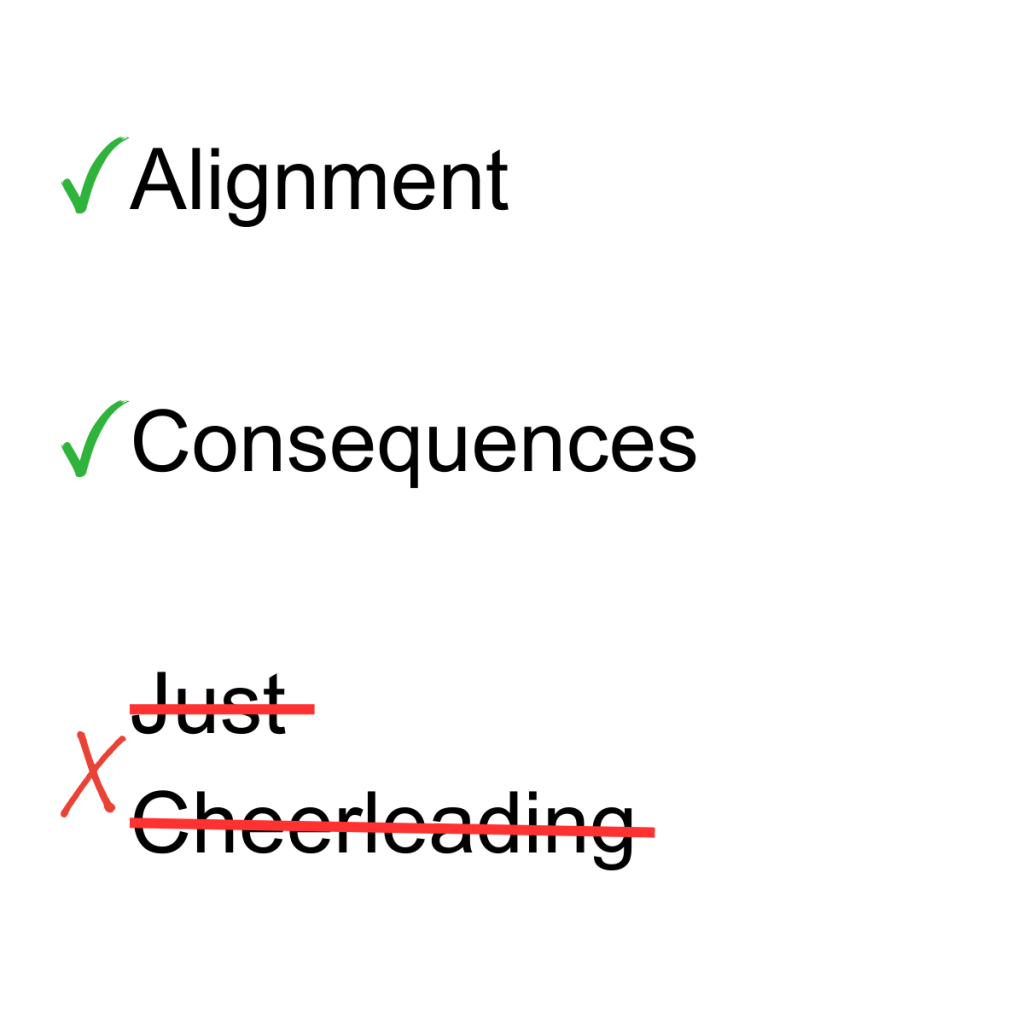Every accountability partner agreement starts with high hopes. In the beginning, you may imagine checking off goals and celebrating wins together. But the reality often looks different. I’ve been in accountability partnerships since 2019. During this time, I’ve seen how these agreements can fall apart. I’ve also worked out how to fix them.
Read about some of my hard won lessons. As a result, you will be able to avoid the mistakes I made. You can then expect the benefits of a strong accountability partnership sooner!
Where Accountability Partner Agreements Go Wrong
Missing the Real Point
Many accountability partner agreements fail because people mix up what they’re looking for. They may want:
- Someone to work alongside (coworking)
- Someone to give advice (coaching)
- Someone to track progress (monitoring)
And expect their potential partner to want the same thing.
Often, these foundational conversations don’t happen. This leads to misunderstandings later on.
Lack of Consequences
The roles above can be beneficial. But, they leave behind the important ingredient of accountability partnerships.
For example, I was once in an accountability group with a bunch of ambitious and capable individuals. I was trying to improve my sleep. Specifically, I wanted to go to bed 30 minutes earlier.
When it came to reporting my progress, I would often report failure. I would rarely meet the goal. Sometimes, I would actually go to bed even later than my baseline.
Often, the response from the group was “That’s OK, Joey. Try again next time.”
And it was well meaning and had supportive intentions.
But it didn’t bring me closer to my goal.
Compare this with the response: “That’s OK, Joey. How about we say, if you don’t meet your target bed time, you miss out on playing video games?”
Ouch.
You can imagine I would get my act together pretty quickly. And I did. Once we set this consequence, my bedtime became consistently earlier. While I didn’t quite hit my 30-minute goal, I made solid progress. Most importantly, I stopped the backsliding that happened when I felt bad about missing my target.
Pats on the Back over Prods to the Goal
Your accountability partner might come to every meeting, but:
- The conversation wanders without a clear plan
- You spend more time catching up than checking goals
- You both avoid talking about the bigger goals you’re not reaching
Boxes are ticked. Everyone leaves feeling warm and fuzzy. And no one has pointed out that, while Joey created 10 cute Tik Tok videos this week, he didn’t have that difficult conversation with a vendor that is blocking his capability to serve customers.
So, Joey feels accomplished. But, the real issue remains unaddressed.
Too often, a conversation about boxes ticked obscures real blockers to progress. These conversations should be used to support each other into leaning into the discomfort of progressing important goals.

Making Your Accountability Partner Agreement Better
Get Agreement on What You’re Looking For
The word “accountability partner” has become conflated with many other things. These include coworking, coaching and monitoring.
Get clear on what you and your accountability partner are looking for. If you’re looking for different things, clarify whether the partnership can still persist. If not, thank them for exploring the possibility with you. You can then find an accountability partner more aligned with your intentions. This is much better than trying to force a relationship into something that it’s not.
Set Clear Consequences
From the beginning, the consequences for not meeting your commitment need to be clear. Good consequences in your accountability partner agreement should:
- Matter to you personally
- Connect directly to your goal
- Not harm your mental health
For example, you might agree to:
- Take a break from video games / TV until you catch up on your goal
- Donate money to a cause you don’t support
- Share your missed commitments publicly with the group
Create a Strong Structure
Your accountability partner agreement should include:
- A clear format for every meeting
- A way to check last week’s commitments
- Time to talk about both short-term and long-term goals
- Regular checks to make sure you’re moving in the right direction
Focus on Real Progress
In your accountability partner agreement, be sure to:
- Challenge each other’s choices of goals
- Look for meaningful outcomes, not just finished tasks
- Connect current work to long-term plans
- Push each other to tackle important challenges, not just easy ones
Remember: A good accountability partner agreement isn’t about being perfect. In fact, the good ones might feel a little bit uncomfortable.
If you keep the above tips in mind, you’ll be far ahead of the crowd.
Forging a Accountability Partner Agreement through Community
If you’re ready to forge a strong accountability partner agreement, my community offers:
- Experienced facilitation that helps you forge lasting partnerships. Tired of partners that go dark after a few weeks? Not here!
- Growth inspired by access to highly motivated, dedicated, and ambitious peers.
- Support to achieve goals you never thought possible. Along the way, you’ll make friends you never knew you needed
Don’t let another week go by with an accountability partnership that’s just going through the motions. Visit this page to join others who are serious about making their accountability partner agreements work.
